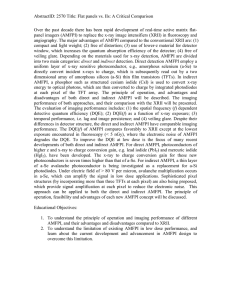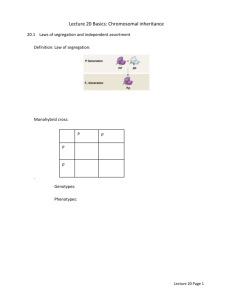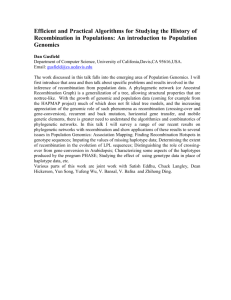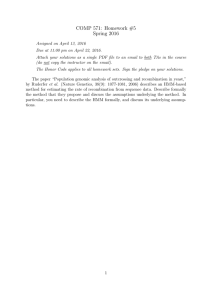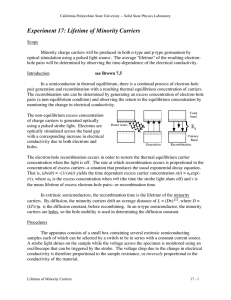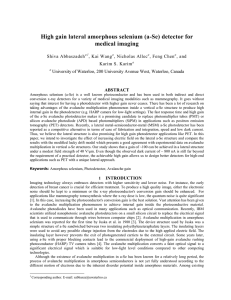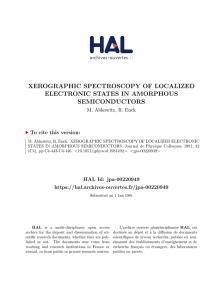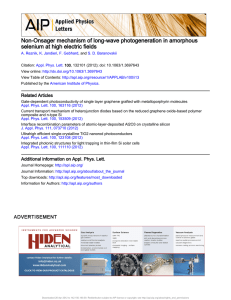AbstractID: 6535 Title: Mechanism for charge creation in a-Se based... detectors a under study in medical imaging for diagnostic purposes and for...
advertisement
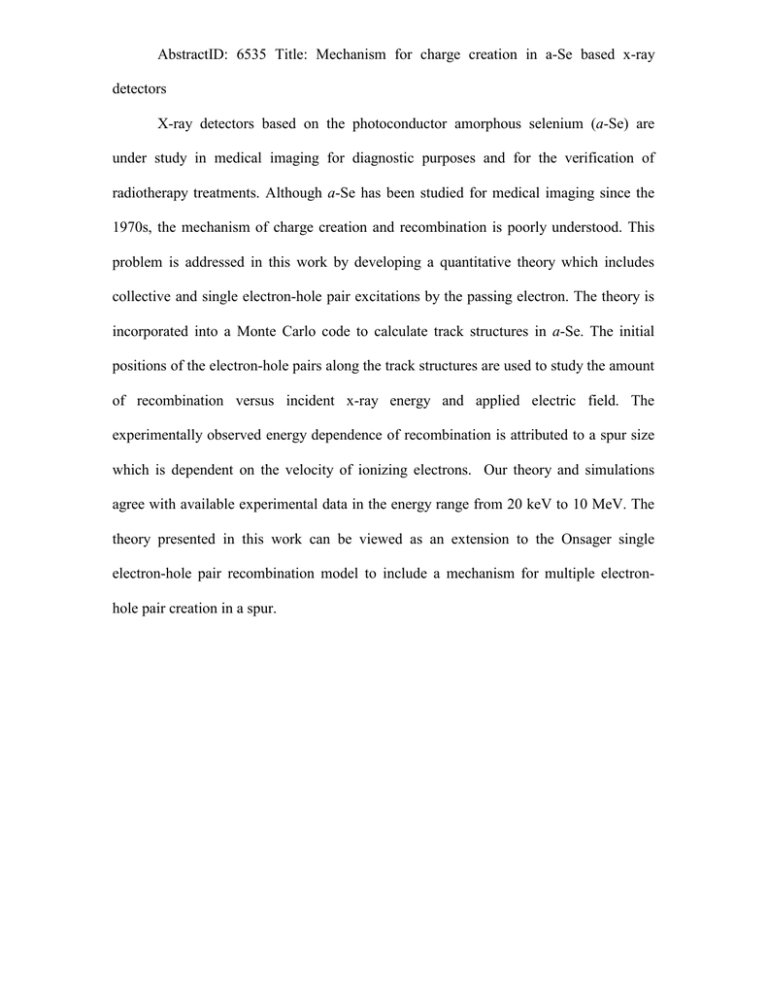
AbstractID: 6535 Title: Mechanism for charge creation in a-Se based x-ray detectors X-ray detectors based on the photoconductor amorphous selenium (a-Se) are under study in medical imaging for diagnostic purposes and for the verification of radiotherapy treatments. Although a-Se has been studied for medical imaging since the 1970s, the mechanism of charge creation and recombination is poorly understood. This problem is addressed in this work by developing a quantitative theory which includes collective and single electron-hole pair excitations by the passing electron. The theory is incorporated into a Monte Carlo code to calculate track structures in a-Se. The initial positions of the electron-hole pairs along the track structures are used to study the amount of recombination versus incident x-ray energy and applied electric field. The experimentally observed energy dependence of recombination is attributed to a spur size which is dependent on the velocity of ionizing electrons. Our theory and simulations agree with available experimental data in the energy range from 20 keV to 10 MeV. The theory presented in this work can be viewed as an extension to the Onsager single electron-hole pair recombination model to include a mechanism for multiple electronhole pair creation in a spur.


